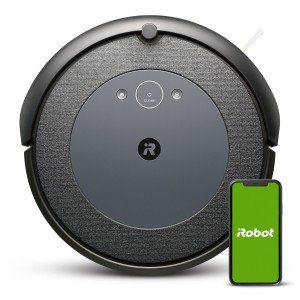The Rise of the Automated Vacuum: A Comprehensive Overview
As innovation continues to evolve, so too does the method we approach daily tasks, including cleaning our homes. The development of automated vacuums, frequently referred to as robotic vacuums, has changed the landscape of home tasks, providing a level of convenience previously unthinkable. This post delves deep into the features, benefits, difficulties, and future of automated vacuums, illuminating why they are ending up being a staple in contemporary families.
What is an Automated Vacuum?
Automated vacuums are self-operating devices designed to tidy floors while requiring minimal human intervention. Geared up with sensing units, they browse spaces, prevent barriers, and return to their charging stations when short on battery. Lots of designs even use programmability via smart device apps, allowing users to set cleaning schedules or manage the vacuum remotely.
Key Features of Automated Vacuums
| Feature | Description |
|---|---|
| Navigation | Uses sensing units and cams to map out areas, permitting systematic cleaning paths. |
| Programmable Cleaning | Users can set up cleanings via mobile apps or pre-set timers on the device. |
| Smart Home Integration | Compatibility with smart home systems (e.g., Alexa, Google Home) for voice control. |
| Dirt Detection | Advanced designs can identify locations with more dirt and concentrate on them for much deeper cleaning. |
| Charge Dock | Automatically returns to its charging station when battery levels are low. |
| Numerous Surface Cleaning | Can shift flawlessly between different floor types, including carpet, tile, and wood. |
Advantages of Automated Vacuums
- Time-Saving: Automated vacuums can substantially decrease the time spent on household tasks, making it possible for users to designate their time to more pleasurable activities.
- Consistency: These gadgets offer a consistent cleaning schedule, ensuring that dirt and dust don't have a possibility to accumulate.
- Availability: Individuals with movement difficulties may find automated vacuums particularly advantageous, as they relieve the physical demands of vacuuming.
- Technological Innovation: Many models include sophisticated functions such as app control, which allows users to keep track of and manage their vacuum from essentially anywhere.
- Energy Efficient: Most robotic vacuums are developed to run effectively, utilizing less energy than traditional vacuum.
Drawbacks to Consider
While the benefits of automated vacuums are numerous, there are likewise some prospective downsides:
- Cost: While prices have ended up being more competitive, high-end designs can still be a substantial investment.
- Restricted Suction Power: Robotic vacuums may not use the exact same effective suction as standard designs, particularly on high-pile carpets.
- Upkeep Needs: Users need to regularly clean up brushes and filters to keep ideal efficiency.
- Size Restrictions: Some learners may struggle to navigate tight areas or high furnishings, leading to locations that remain uncleaned.
Popular Brands and Models
When buying an automated vacuum, it's necessary to pick a respectable brand that fits specific cleaning needs. Here are some widely-regarded choices in the market:
| Brand | Model | Secret Features |
|---|---|---|
| iRobot | Roomba i7+ | Self-emptying base, advanced smart mapping, Alexa compatible. |
| Ecovacs | Deebot Ozmo T8 | Integrated mopping function, exceptional navigation, and smart home compatibility. |
| Roborock | Roborock S7 | Strong suction power, sonic mopping, multi-floor mapping. |
| Neato Robotics | Neato D7 | D-shape design for corners, LaserSmart mapping technology. |
Future of Automated Vacuums
The trajectory for automated vacuums points towards greater elegance and combination with smart home technologies. As synthetic intelligence (AI) becomes more embedded in home gadgets, future models are expected to utilize device discovering to enhance their cleaning efficiency and navigational capabilities.
Possible improvements consist of:
- Enhanced AI Learning: Improved algorithms permitting vacuums to learn user practices and adapt their cleaning schedules accordingly.
- Better Navigation: Continued development of LiDAR and cam systems for much better challenge avoidance and mapping.
- Multifunctionality: The emergence of vacuums that can not just tidy floors however likewise take on cleaning and other family tasks.
Regularly Asked Questions (FAQs)
Q1: Can automated vacuums clean carpets effectively?
A1: Many modern automated vacuums feature strong suction abilities and specialty brushes developed for carpet cleaning. Nevertheless, deep cleaning high-pile carpets may still require traditional vacuuming approaches.
Q2: How long do automated vacuums normally run on a single charge?
A2: The runtime can differ by model, but a lot of robotic vacuums can operate between 60 to 120 minutes before needing a recharge. Advanced designs might have longer runtimes.
Q3: Are automated vacuums ideal for homes with family pets?
A3: Yes, lots of automated vacuums are designed with pet owners in mind. They typically feature more powerful suction and tangle-free brushes that can get pet hair successfully.
Q4: How frequently should I run my automated vacuum?
A4: This mostly depends on the foot traffic in your home and personal choice, but numerous users discover running it daily or every other day keeps their floors clean.
Q5: Can I manually manage my automated vacuum?
A5: Yes, most automated vacuums include handbook control choices by means of remote or mobile apps, allowing users to direct the vacuum to specific locations.
Automated vacuums represent the intersection of technology and benefit, significantly streamlining home cleaning tasks. While best auto vacuum may have restrictions, their benefits typically surpass the downsides, making them an important addition to modern homes. As innovation continues to advance, we can expect these devices to evolve further, boosting their energy and effectiveness. For anybody looking for a more effective cleaning routine, an automated vacuum may just be the option.

